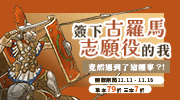300 Tang Poems: Thoughts of China: Haiqing Chinese Philosophy Series
商品資訊
ISBN13:9798332521812
出版社:Independently published
作者:Haiqing Hua
出版日:2024/07/08
裝訂:平裝
規格:27.9cm*21.6cm*3cm (高/寬/厚)
商品簡介
相關商品
商品簡介
Preface: New Approach to Tang Poetry
If you do not understand Tang Poem, how could you claim that you understand China?
In the world of translation, especially when it comes to poetry, complete fidelity is an elusive goal. The intricate beauty and profound emotions embedded in the original language often resist direct translation. Having worked in translation for many years, I have come to realize the inherent challenges and the near impossibility of achieving a perfect rendition. This is especially true for poetry, where every word, every rhythm, and every metaphor carries a depth of meaning that often defies direct conversion into another language.
However, the universal themes, philosophies, and shared human experiences reflected in poetry transcend linguistic barriers. It is this belief that has inspired me to approach the revered "300 Tang Poems" in a novel way. Rather than striving for a word-for-word translation, which may risk losing the essence and beauty of the original, I aim to capture the thoughts, philosophies, and emotions through simple, everyday English narratives.
"300 Tang Poetry Thoughts of China" is not merely a translation; it is an interpretation and reimagining of these timeless works. By using plain and accessible language, my goal is to convey the core ideas and emotions of these poems, making them approachable and relatable to a broader audience. This method seeks to bridge the cultural and linguistic gap, offering readers a glimpse into the rich tapestry of Chinese thought and philosophy.
Through these stories, I hope to bring to life the universal themes of love, longing, nature, and human struggle that resonate across cultures and epochs. The simplicity of the language does not diminish the depth of the original poems but instead highlights the shared human experience that underlies them.
I invite you to journey with me through the landscapes of Tang Dynasty China, to feel the emotions and contemplate the philosophies that have shaped Chinese culture for centuries. My hope is that through these narratives, readers will gain a deeper, more nuanced understanding of China and its people, and find a connection that transcends time and space.
Enjoy the journey.
Haiqing Hua A New Look at "300 Tang Poems: Thoughts of China"
Haiqing Hua's "300 Tang Poems: Thoughts of China" offers a refreshing perspective on this cornerstone of Chinese literature. Rather than simply translating the poems, Hua breaks new ground by presenting them as narratives woven with historical context, philosophical insights, and relatable emotions. This approach stands in stark contrast to the limitations of traditional translation, which often struggles to capture the intricate beauty and profound meaning embedded within Tang Dynasty poetry.
In the preface, Hua acknowledges the inherent challenges of translation, particularly when dealing with poetry. She argues that a word-for-word approach can be a disservice, potentially sacrificing the essence and emotional core of the original work. This resonates deeply - the power of poetry lies not just in the literal meaning of the words, but also in the rhythm, imagery, and cultural context that paint a vivid picture for the reader.
Instead, Hua embarks on a "novel way" of presenting these poems. She aims to capture the "thoughts, philosophies, and emotions" through clear, everyday English narratives. These narratives become interpretations and reimagining, making the poems accessible to a wider audience. This approach seeks to bridge the cultural and linguistic gap, offering a glimpse into the rich tapestry of Chinese thought and philosophy.
If you do not understand Tang Poem, how could you claim that you understand China?
In the world of translation, especially when it comes to poetry, complete fidelity is an elusive goal. The intricate beauty and profound emotions embedded in the original language often resist direct translation. Having worked in translation for many years, I have come to realize the inherent challenges and the near impossibility of achieving a perfect rendition. This is especially true for poetry, where every word, every rhythm, and every metaphor carries a depth of meaning that often defies direct conversion into another language.
However, the universal themes, philosophies, and shared human experiences reflected in poetry transcend linguistic barriers. It is this belief that has inspired me to approach the revered "300 Tang Poems" in a novel way. Rather than striving for a word-for-word translation, which may risk losing the essence and beauty of the original, I aim to capture the thoughts, philosophies, and emotions through simple, everyday English narratives.
"300 Tang Poetry Thoughts of China" is not merely a translation; it is an interpretation and reimagining of these timeless works. By using plain and accessible language, my goal is to convey the core ideas and emotions of these poems, making them approachable and relatable to a broader audience. This method seeks to bridge the cultural and linguistic gap, offering readers a glimpse into the rich tapestry of Chinese thought and philosophy.
Through these stories, I hope to bring to life the universal themes of love, longing, nature, and human struggle that resonate across cultures and epochs. The simplicity of the language does not diminish the depth of the original poems but instead highlights the shared human experience that underlies them.
I invite you to journey with me through the landscapes of Tang Dynasty China, to feel the emotions and contemplate the philosophies that have shaped Chinese culture for centuries. My hope is that through these narratives, readers will gain a deeper, more nuanced understanding of China and its people, and find a connection that transcends time and space.
Enjoy the journey.
Haiqing Hua A New Look at "300 Tang Poems: Thoughts of China"
Haiqing Hua's "300 Tang Poems: Thoughts of China" offers a refreshing perspective on this cornerstone of Chinese literature. Rather than simply translating the poems, Hua breaks new ground by presenting them as narratives woven with historical context, philosophical insights, and relatable emotions. This approach stands in stark contrast to the limitations of traditional translation, which often struggles to capture the intricate beauty and profound meaning embedded within Tang Dynasty poetry.
In the preface, Hua acknowledges the inherent challenges of translation, particularly when dealing with poetry. She argues that a word-for-word approach can be a disservice, potentially sacrificing the essence and emotional core of the original work. This resonates deeply - the power of poetry lies not just in the literal meaning of the words, but also in the rhythm, imagery, and cultural context that paint a vivid picture for the reader.
Instead, Hua embarks on a "novel way" of presenting these poems. She aims to capture the "thoughts, philosophies, and emotions" through clear, everyday English narratives. These narratives become interpretations and reimagining, making the poems accessible to a wider audience. This approach seeks to bridge the cultural and linguistic gap, offering a glimpse into the rich tapestry of Chinese thought and philosophy.
主題書展
更多
主題書展
更多書展今日66折
您曾經瀏覽過的商品
購物須知
外文書商品之書封,為出版社提供之樣本。實際出貨商品,以出版社所提供之現有版本為主。部份書籍,因出版社供應狀況特殊,匯率將依實際狀況做調整。
無庫存之商品,在您完成訂單程序之後,將以空運的方式為你下單調貨。為了縮短等待的時間,建議您將外文書與其他商品分開下單,以獲得最快的取貨速度,平均調貨時間為1~2個月。
為了保護您的權益,「三民網路書店」提供會員七日商品鑑賞期(收到商品為起始日)。
若要辦理退貨,請在商品鑑賞期內寄回,且商品必須是全新狀態與完整包裝(商品、附件、發票、隨貨贈品等)否則恕不接受退貨。
























